Considering a move to Germany from the UK?
Moving to Germany could be the best move you ever make.
With a thriving economy, lower costs of living than the UK, and most importantly a fantastic lifestyle in a country with buzzing cosmopolitan cities, divine natural landscapes, intelligent, friendly locals, and — of course — plenty of beer, Germany is a destination with plenty to please British expats.
Here’s our indispensable guide to everything you need to know if you’re thinking about moving to Germany to live, work, or retire…
Contents
Germany Visa Requirements for Brits
Visiting
With the uncertainty of Brexit looming in the horizon, it is unclear exactly how visas for UK citizens going to Germany will be affected.
As things currently stand, Brits do not require a visa when visiting Germany, but come the end of March 2019 that may change.
In the event of a no deal Brexit, it will be possible to enter Germany for up to 90 days, after which time you will need to apply for a tourist visa.
Should Britain leave the EU and come to a deal, visa regulations won’t change until at least at least 31 December 2020, which means the it will still be able to stay, live, and work without a visa of any kind up until that time.
Working
For the moment no work visa is necessary, but should Brexit go ahead without a deal, Brits will require a work visa if they wish to be employed in Germany after the end of March this year.
In order to apply for a German work visa you will need a good CV in your field of employment plus a firm offer of a job in Germany. You will also need to apply for a temporary residency permit or EU Blue Card (the EU Blue Card is for citizens of countries outside the EU who are highly skilled in a profession and who have attained at least a bachelors degree in their specified field).
Temporary residence permits will be granted provided you have a specific reason for staying in Germany — in this case work — and will be tied into your reason for staying and will become invalid should you stop work or become a student, for example.
Work visas are valid for one year, and can be extended annually provided your circumstances don’t change.
After five years of working in Germany, you can apply for a settlement permit or EU right of residence in order to stay in the country indefinitely.
Permanent Residency
Called the Niederlassungserlaubnis, the German settlement permit or residence permit is usually granted to those who have already been living and working in the country for the previous 5 years on a temporary residence permit or with an EU Blue Card.
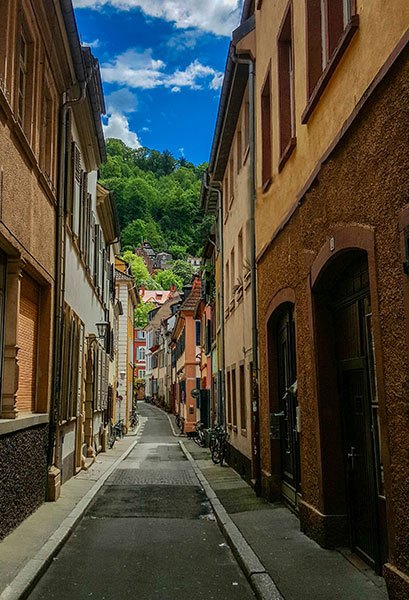
Brits seeking permanent residence in Germany will also need to be able to speak German to an advanced level.
Once granted, permanent residency entitles you to live in work in Germany indefinitely, as well as travel freely in and out of the country.
Way of Life in Germany
Lifestyle
Lederhosen, beer, sausages and sauerkraut are just some of the stereotypes that us Brits have regarding the German lifestyle.
Whilst it can be confirmed that lederhosen are mostly a thing of the dim and distant past, beer and good German cuisine certainly isn’t.
Germans love to drink beer and have fun and there are excellent bars and clubs where people dance and party until the wee hours.
Traditional food is hearty and rich with each region having speciality dishes, and cities such as Berlin have an up and coming foodie scene complete with Michelin star restaurants and a wide variety of cuisine from all over the world.

This is a country that runs like clockwork.
Everything is well organised, public transport is efficient, and the streets are clean as a whistle. Germans also highly value a healthy work-life balance, with most people working a 35 hour week and having more days paid holiday than in the UK.
This together with good rates of pay, healthy outdoor activities, and an emphasis on friends, family and downtime provides expats living in Germany with a high quality of life.
Getting Around
With so much to explore in Germany it’s a good job that there are excellent and efficient transport systems in place. Here are the best ways to get around…
Plane
All major cities have airports, with both regular and budget airlines offering services between them. This is not the most popular way of getting around Germany however, as cheap flights can be thin on the ground, and unless you’re really pushed for time other modes of transport offer a more wallet friendly, scenic way to travel.
Train
Germany’s train network is probably one of the best in the world, and as well as super efficient regular train services, there are high speed trains (Intercity-Express services) linking major cities which achieve speeds of up to nearly 200 mph.
If you’re thinking about travelling by train in Germany, there are plenty of money saving rail passes to choose from to cut down your costs.
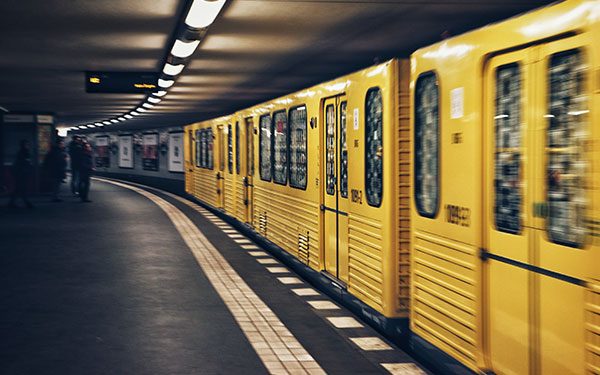
Bus
Cheaper than travelling by train or plane, Germany’s long distance bus networks cover most of the country, and buses are comfortable and clean with good on board services.
Ticket prices are incredibly low, but journey times can be long depending on the distance you want to cover.
Local bus services are a good way to explore rural areas where other modes of transport are less common.
In the City
There are a wide choice of transport options for getting around Germany’s cities and towns.
Bigger cities such as Berlin benefit from a fast U-Bahn or underground railway, and all cities have trams, overground trains, and bus services — all of which run cost-effective and efficient.
Taxis are another option, but they are significantly more expensive and slower than other modes of public transport.
Cabs cannot usually be hailed on the street and often have to be ordered in advance.
Alternatively take a leaf out of the locals’ book and cycle — cities have good provisions for cyclists and if you wish to travel further afield there are literally thousands of miles of scenic cycle lanes throughout the country.
Driving in Germany
Most Germans and expats would agree that driving a car in the cities probably isn’t worth it as public transport is so good.
However if you want to travel around the country under your own steam, driving the German roads can be great fun.
The high speed autobahns are impeccably maintained and toll free, with regularly placed luxury service stations, but its worth noting that some sections have no official speed limit and can be a little hair raising.
Country roads are calmer but can be a little trickier to navigate as road signage can be confusing, so it’s worth taking a map or satnav.
Germans drive on the right hand side of the road, but watch your speed as cameras are common. There are plenty of well known international car hire companies based in cities, town and airports should you wish to hire a vehicle, but you must be 25 or older, and have a valid driving license and credit card.

Weather in Germany
Generally mild, Germany has warm summers and mild winters, but the weather is known for sudden changes.
The south west of the country is warmest with good weather in spring, summer and into autumn, plus a Mediterranean climate.
Elsewhere though summer temperatures are around 24 °C on average, and rainfall can happen at any times of the year, and winter brings freezing temperatures and heavy snowfall in some areas.
Fog is also common during autumn and winter.
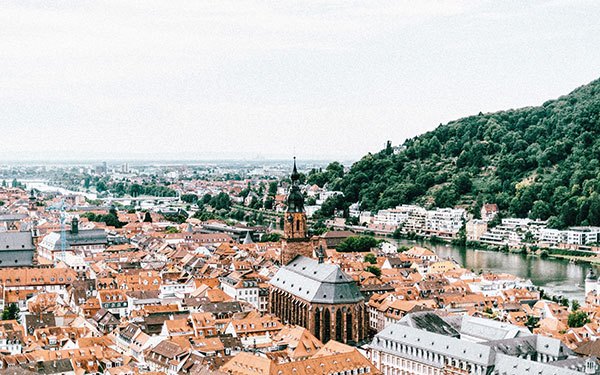
Cost of Living in Germany
Lifestyle
Lifestyle costs in Germany are largely similar to that of the UK, with prices in the south of the country being higher than those of the north.
The capital city of Berlin is actually less expensive than some other German cities and 24% cheaper than London, making it an affordable destination for expats.
Take a look at this video for some in-depth figures:
On average you should expect your outgoings to fall with the bracket of €800 and €1,000 a month, provided you are living relatively modestly.
Standard groceries are cheap, although foreign foods command higher prices. A meal for two in a mid range restaurant costs around €30 to €45. Beer and other alcohol is very cheap.
Public transport costs are on a par with the rest of Europe, but the price for utilities such as gas, internet and electricity are surprisingly relatively high.
Rent
Rental accommodation throughout Germany is of a good standard, and generally cheaper than the UK.
Germany’s most expensive city is Munich, where a one bedroom apartment in the centre of the city costs around €1,100 per month, whereas in Berlin you could expect to pay around €800 for a similar apartment.
Suburban areas are much less expensive, and there are some bargain properties to be found if you don’t mind a commute.

Healthcare
The quality of medical care and hospital facilities is extremely high in Germany, but expats living there are required by law to have health insurance.
There are two types of health insurance available — state or private. If you are working for a German employer you will qualify for state health insurance, which requires you to pay a monthly sum from you pay packet.
This sum is dependent on the amount of money you earn.
However not everything is covered by this level of health insurance, and you made need to pay separately for some treatments or services or opt for a top up insurance plan to cover the extras.
If you are not able to benefit from state health insurance you will need to take out a private healthcare plan, the costs for which will be dependent on your age, general health, and other factors.
Schooling
If you are living in Germany with your children, it is compulsory to enrol them in school, as home schooling is strictly illegal.
The standard of education in German state schools is very high, but lessons are taught in German which can be a problem for some expat families.
As an alternative there are many high quality private international schools throughout the country which offer lessons in English and follow a similar curriculum to that back in the UK.
Fees vary depending on each particular school, but expect to pay in the region of €12000 – 15000 per year.
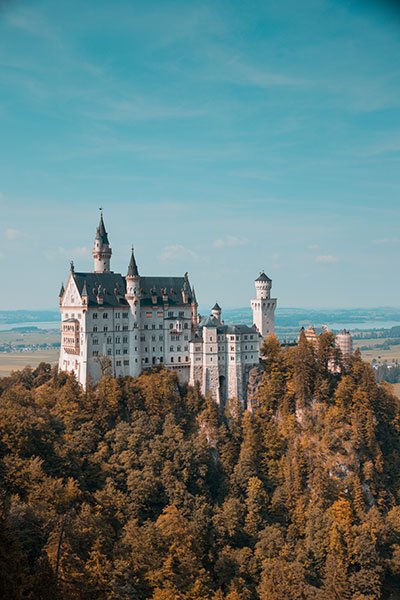
Popular Areas for Brits
Berlin
Once torn apart by conflict, Berlin has risen from the ashes to transform itself into a bright, exciting city to rival some of the best capitals in the world.
Berlin’s gritty and poignant back story will appeal to history buffs, and the fresh and energetic art and food scenes plus incredible nightlife are enough to keep anyone endlessly entertained, not matter what their tastes, age, or budget.
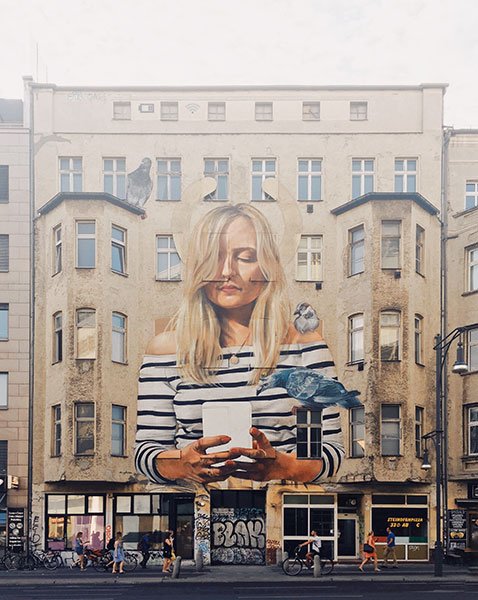
Frankfurt
Situated right at the core of the Bundesrepublik, Frankfurt is a compact city with a rich culture and packed with charm.
A mixture of medieval and modern, wood framed historical buildings rub shoulders with glittering skyscrapers and swanky restaurants.
This is a city that adores the arts, with theatres, galleries, museums, and more, and while it may be rooted in history, it’s also vibrant, hip, and fun.
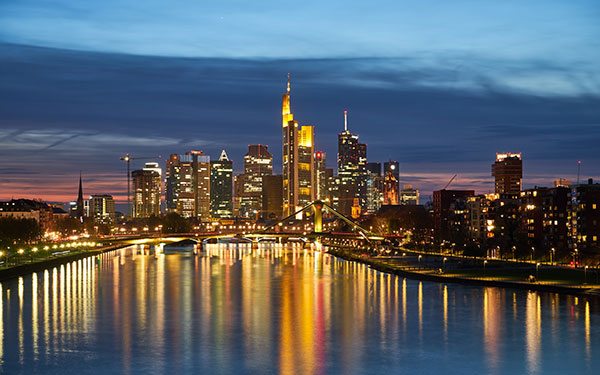
Cologne
Rising up from the banks of the Rhine, Cologne was originally founded way back in Roman times, but has since evolved into a spirited city with a mix of traditional ethos and contemporary delights.
The extraordinary Gothic cathedral at the heart of the city is a must see, and there are plenty of cafes, bars, and restaurants where expats can chill out and watch the world go by, and a budding arts scene to rival Berlin.
Munich
If you love beer you’ll love Munich.
The Bavarian capital is home to 6 world class breweries and the world famous Oktoberfest. Savour these beers in an atmospheric traditional bierkeller or alternatively enjoy gourmet fine dining at one of the city’s premier restaurants.
Alternatively dive into the local arts scene bursting with impressive museums and galleries or shop till you drop at the glittering malls. This is an affluent and endlessly interesting city which attracts the well heeled but which holds appeal for all tastes.
Hamburg
Seedy and sensational in equal measure, this wealthy city is the playground of millionaires, artists, and entrepreneurs alike.
Hamburg grew up around shipping and trade routes, and as such is rich in architecture, culture, music, nightlife, restaurants, and more. It’s achingly cool, incredibly multicultural, and a place where a good time is guaranteed.
Dusseldorf
A major centre for the arts, sophisticated Dusseldorf boasts cutting edge architecture, art museums, street art, and a renowned opera house.
This glitzy city is Germany’s fashion capital, where people dress to impress and sip expensive cocktails in chic bars after a heavenly gastronomic experience in high class restaurants.
The Rhine winds majestically through its heart, nourishing the many leafy parks and gardens within which offer the perfect space to relax.
Heidelberg
Blessed with some of Germany’s best weather and in an idyllic location, Heidelberg is unashamedly romantic.
Nestled in a river valley and surrounded by forests, mountains and vineyards, this charming and cultural city has picturesque baroque architecture, museums, cafés on quaint cobbled streets and a lively student culture. Heidelberg offers up an intriguing mix for all ages and tastes.
Jobs in Germany for British Expats

If you’re looking for menial work in Germany you may be disappointed, however as a skilled professional you may well be able to find lucrative employment.
Competition for jobs in Germany can be tough, and foreigners are only eligible for a position if it cannot be filled by a worker from the EU/EEA or Switzerland, so things may get even harder depending on the consequences of Brexit.
That said, there is a shortage of skilled workers in certain sectors including the automotive industry, electrical and mechanical engineers, trade, healthcare, and IT.
The prospects for STEM graduates are also very good. The ability to speak German to a reasonable level is guaranteed to boost your chances of finding employment in Germany, as well as high level of qualification and plenty of experience.
Still considering moving to Germany? Let us know your experiences in the comments!






